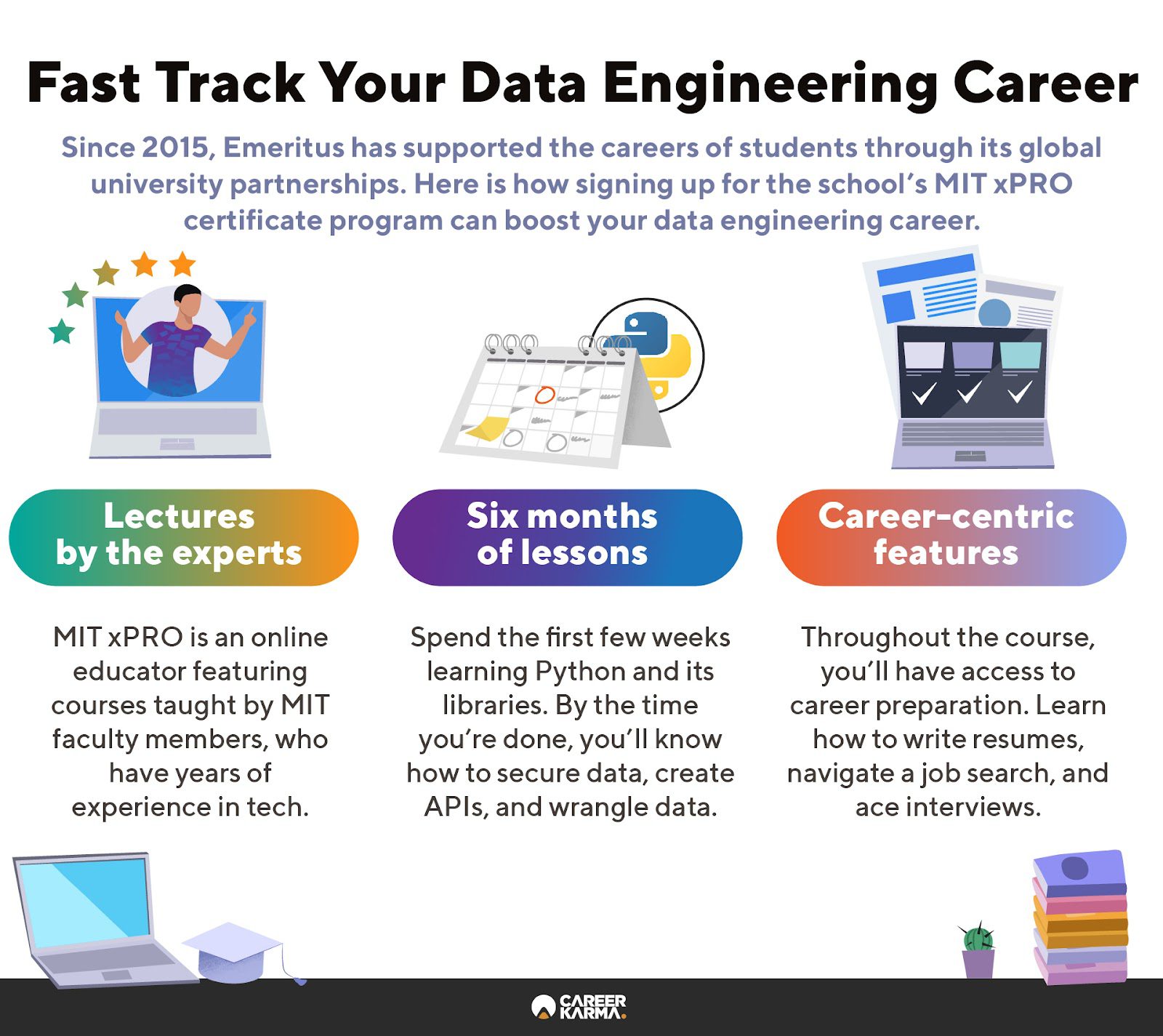Data science is a rapidly growing field that many organizations rely on to remove a significant amount of guesswork in their decision-making process. Data science allows companies to analyze hard data straight from the source to identify their customer and client needs.
Many large companies are still working on their digital transformation process, where they bring in data experts to change their operating strategies. Data science workers lead these strategic efforts, with data teams building the infrastructure these companies need.
As you may have heard, the artificial intelligence-enabled economy is here, and digital transformation has highlighted its benefits.
But there’s a problem with the way companies are rushing to prepare for the future. Firms are rushing to build data infrastructure, often without fully understanding its importance. In their hurry to compete in the new data-driven market, many of these companies hire a handful of data scientists without accounting for the necessary support they need to perform well.
Organizations that employ data science teams should focus on all three of the discipline’s roles: data analysts, data engineers, and data scientists, as each are a necessary cog in a successful data-driven operation.
Analysts comb through an organization’s past data to analyze recent initiatives or overall performance. Meanwhile, scientists look at the same data and use machine learning to project the performance outcome of a future task.
But where does all that data come from? And how do they know where to look? That’s where data engineers come in. They play a key role in the data science pipeline. Because many companies are looking to build their products the right way as their understanding of the discipline advances, they’re looking to hire more and more data engineers.
Data engineers are among the most requested new tech hires. The high demand for engineers presents a unique opportunity for career changers. Talented developers can get in on the ground floor of a strong job market, and there are great bootcamps to help you do it.
One of these is MIT xPRO’s Professional Certificate in Data Engineering Bootcamp. Through this bootcamp, you’ll learn a data engineering curriculum that will give you a competitive edge when you enter this growing field. But first, let’s talk a bit more about what data engineering actually is.
The hiring boom in data engineering presents new opportunities for all. MIT xPRO’s bootcamp teaches you all you need to know to join this thriving field.
Learn more about MIT xPRO’s bootcamp here.What Is Data Engineering?
Data engineering is the third facet of data science, where elite developers build data pipelines that automatically sort raw data in a database. These large bodies of unsorted data are called data lakes, and the sorting process is called data warehousing.
Data analysts and data scientists can’t do their jobs without data engineers. They’re the first step in the data intake process, where the data is collected and put into a more useable state.
Usually, the conversation around data science glosses over the power of data engineers before skipping straight into data science and machine learning jobs. But most companies aren’t looking to hire too many people to fill those roles, as they’re expensive and have specific use cases.
As the demand for data engineers increases, the field has settled on a few key technical skills that every data engineer should have. To succeed, data professionals today must know how to secure and transport data using Python, its NumPy and pandas libraries, SQL databases, and more.
You could learn these skills on your own, but if you’re looking for quality education at an accessible price, MIT xPRO has the course for you.
An Overview of MIT xPRO Professional Certificate in Data Engineering

MIT xPRO is an online educator featuring courses taught by MIT faculty members. These courses allow you to learn several topics from experts with decades of real-world experience who collaborate with the largest companies on the planet.
MIT xPRO Data Engineering Course Curriculum
As this six-month course begins, you’ll spend a few weeks learning Python and its libraries, as well as SQL, a relational database tool. You’ll then progress in Section 2 to how these industry tools work together and how to secure data, create APIs, and wrangle data.
In the third section of the course, you’ll learn about big data and data warehousing while also learning about the connections between AI, machine learning, and data engineering. This course gives students traditional training in relational databases before moving to how modern data engineering structures work.
Throughout the course, you’ll have access to career preparation, including crafting your elevator pitch, writing new resumes, navigating the job search, acing the interview, negotiating salary, and more. You’ll work one-on-one with your career coach who will give you personalized support in your job search.
Through this combination of technical instruction and career preparation, students give themselves a solid launchpad when entering a new field. You’ll also receive a certificate of completion that you can add to your resume.
This course is designed for career changers looking to enter the data engineering field, but recent STEM graduates looking to start a career in the field and early career tech professionals who want to learn data engineering tools and principles are also welcome.
This course costs $6,950, and there are a few payment plans available that can make this course more accommodating to your budget. The next cohort begins on February 2.
Who Will You Learn from at MIT xPRO’s Data Engineering Program?
For this course, students learn from two MIT professors. One of them is Dr. John R Williams, professor of Information Engineering, who earned his bachelor’s degree in physics from Oxford University, his master’s degree in physics from UCLA, and his Ph.D. in numerical methods from the University of Wales.
Over his career, he has worked with SAP Research, Microsoft Research, Motorola, Ford, and more. He’s also authored or co-authored over 250 journal and conference papers.
The other professor is Dr. Abel Sanchez, Research Scientist and Executive Director of MIT’s Geospatial Data Center. He has not only focused on data science but has also developed applications for the internet of things and made cybersecurity milestones like leading the design of a password firewall. Dr. Sanchez also built software for Microsoft and Accenture, where he led a project to develop a situational awareness framework to analyze outside entities.
With these two experts, students learn the critical skills they need for a data engineering career. And even though MIT xPRO doesn’t offer a degree like MIT, it does bestow a university-backed credential on students who earn it. This credential is evidence that you’ve done the hard work to pass a course that’s up to MIT’s high standards.
Is the MIT xPRO Data Engineering Course Right for You?
This course is right for you if you identify with any of the three audiences:
- Recent STEM graduates or interns who want to start a career in data engineering
- People coming from technical fields like IT, analytics, finance, and the like who want to reskill in data engineering
- Professionals with some experience in software engineering and technology want to take the data engineering route
There are no prerequisites for this course, but prior coding experience is recommended, along with a minimum of a bachelor’s degree.
Claim Your Place in the Data Revolution
Demand for data engineers is increasing, with an average entry-level salary of about $77,541, presenting a lucrative opportunity to course-takers. Companies rely on data more and more each day, and you have the chance to start your career at a crucial nexus point for the future of the tech industry.
If you’re interested in learning more about the MIT xPRO Data Engineering course, visit the course page today.
About us: Career Karma is a platform designed to help job seekers find, research, and connect with job training programs to advance their careers. Learn about the CK publication.




